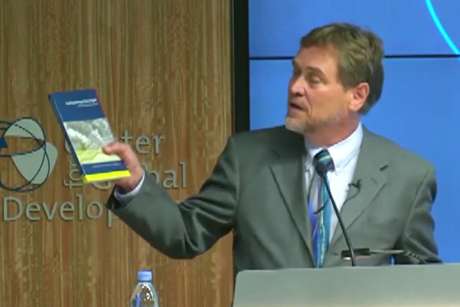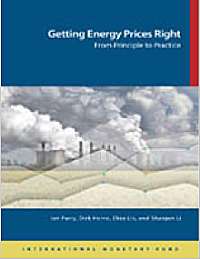How to pay the real costs of energy use

An old proverb says, "Take what you want and pay for it." That's really the message of a new book, "Getting Energy Prices Right: From Principle to Practice," published in July by the International Monetary Fund (IMF). The book is a practical guide for policymakers to set energy taxes that reflect the real costs of energy use.
Shanjun Li, assistant professor in Cornell's Dyson School of Applied Economics and Management, is a co-author with Ian Parry, Dirk Heine and Eliza Lisp of the Fiscal Affairs Department of the IMF.
Li's research focuses on environmental, energy and transportation policies in the United States and China. In particular he has studied consumer behavior related to gasoline consumption, gasoline tax and vehicle purchases.
The book was commissioned by IMF managing director Christine Lagarde, with the goal of "using fiscal policy to make sure that the harm we do is reflected in the price we pay." Energy taxes, she said, should pay the costs of damage to the environment, road wear, highway congestion, health problems caused by air pollution and more. This is an IMF concern, she said, because "When the environment is degraded, the economy is degraded as well."
The book shows how a country can determine the cost of environmental damage due to its energy use and how to design energy taxes to cover those costs. It provides examples of what the results would be in more than 150 countries, and concludes that there is pervasive mispricing of energy across developed and developing countries alike. For example, Lagarde said, coal is the dirtiest energy source, but "almost no country imposes meaningful taxes on coal." The book's calculations also show that efficient energy pricing worldwide would reduce carbon emissions by an estimated 23 percent and fossil-fuel air pollution deaths by 63 percent.

Provided by Cornell University




















